I’ve shared this memory before, but here it is again:
Maybe I’m 16 weeks pregnant with Hadley. It’s early enough into the pregnancy that we’re allegedly out of the danger zone, but after having a miscarriage, I am now realizing there’s no such thing as being out of the danger zone when it comes to motherhood.
Danger as in fear. Danger as in mystery. Danger as in adventure. Danger as in excitement. I want in. I accept. And also, I’m sick, tired, and I don’t want to talk or know how to talk about what’s happening to me. I am a cocoon and a caterpillar all at once - I am doing and becoming at the same time, and at the same time I have no control over what’s happening. This danger is all I have energy for.
I walk to Borders on this morning, and for reasons I don’t remember, went to the bookstore looking for Truman Capote’s In Cold Bold. It isn’t in the nonfiction section, where I believe it should be, so I ask a clerk if it’s in stock. He says it is, and walks me to the fiction section.
“But it’s not fiction,” I tell him.
“This is where it is,” he says.
“It’s not supposed to be here,” I say.
“Do you want the book or not?” he asks.
Blame hormones, but I am beyond upset about where this story is placed, and where I think it belongs. My baseline these days is anger and sadness. Everything is out of order. I can deal when things don’t make sense, but I cannot deal when things are out of order. I leave Borders in tears.
I walk to Starbucks. I’m not supposed to have (too much) coffee these days, and anyway it grosses me out, a fact that is giving me an identity crisis. (What if I never like coffee again? What if I prefer to not like coffee? What’s to become of me? Of all of us? Of the world?)
I need something familiar though, and so I order a small coffee and sit down. The first sip always fools me. “Remember me? I remember you,” coffee says, but that is as far as the flirtation goes, and all I can do is hold the sides of the cup and feel its warmth.
Two women walk in at the same time Aretha Franklin’s “Spirit in the Dark” comes on. The song starts off slowly, like we’re all waking up and maybe our bodies aren’t quite ready but our hearts are and so our limbs pay attention.
The women order their coffees and while they wait the song gets louder, the beat more prominent. The two don’t know each other, but they know the song and I watch now, as singing, how saying they’re getting the spirit - something dangerous and mysterious and exciting and something they want in on - begins a friendship.
They both want sugar and cream in their coffee, and when they walk over to where these are, they do it on beat - their steps are strides and shimmies, their heels tap and clank to Aretha’s voice. One of them pours the milk with a hand in the air, her bracelets jangle like a small tambourine. The other snaps and shakes her hips. They are laughing and dancing and egging each other on and this is the memory that comes up when I see this photo:
This is Maya Angelou and Amiri Baraka cutting loose at a party in honor of Langston Hughes. Words, Jason Reynolds explains, make us dance. Words are ours to use, to show, to tell, to argue, to encourage, to humor, but when you’re a word-maker, as Reynolds calls Langston Hughes, words are here to party.
Reynolds, with the help of Jerome Pumphrey and Jarrett Pumphrey, tells us what Langston Hughes could do with words:
And when people decided because of arrogance and fear and downright stupidity that Hughes’ words were no good, when they were looking to get clear of the danger zone, he turned his words into laughter:
The great thing about word-making, about story and poetry making, is they don’t just make us want to dance because we’ve been moved, or seen, or inspired. Often times, word-makers grab our hands and pull us into the danger zone and say, “Let’s see what you can do. Go ‘head. Go ‘head. Go ‘head!” And it’s a mystery, the beat that moves us. It’s exciting and scary, but the beat is clear and so we try. We can’t help but try - to make a melody, a song, to dance. To (keep) going ahead.
This is what happened to Maya and Amiri, and it is what they did because of Langston’s words. I think it’s what Aretha Franklin did for the two women I saw in Starbucks 18 years ago. There Was A Party For Langston tells the story of a party put on at a library in New York City in honor of what Langston Hughes made with words, but the way it’s told invites us to the party that is still going on, if we want in. We might not always know what’s going on, so grab a word, see what’s to be made with it. Turn it into a beat. A melody. A song.
Make people dance.





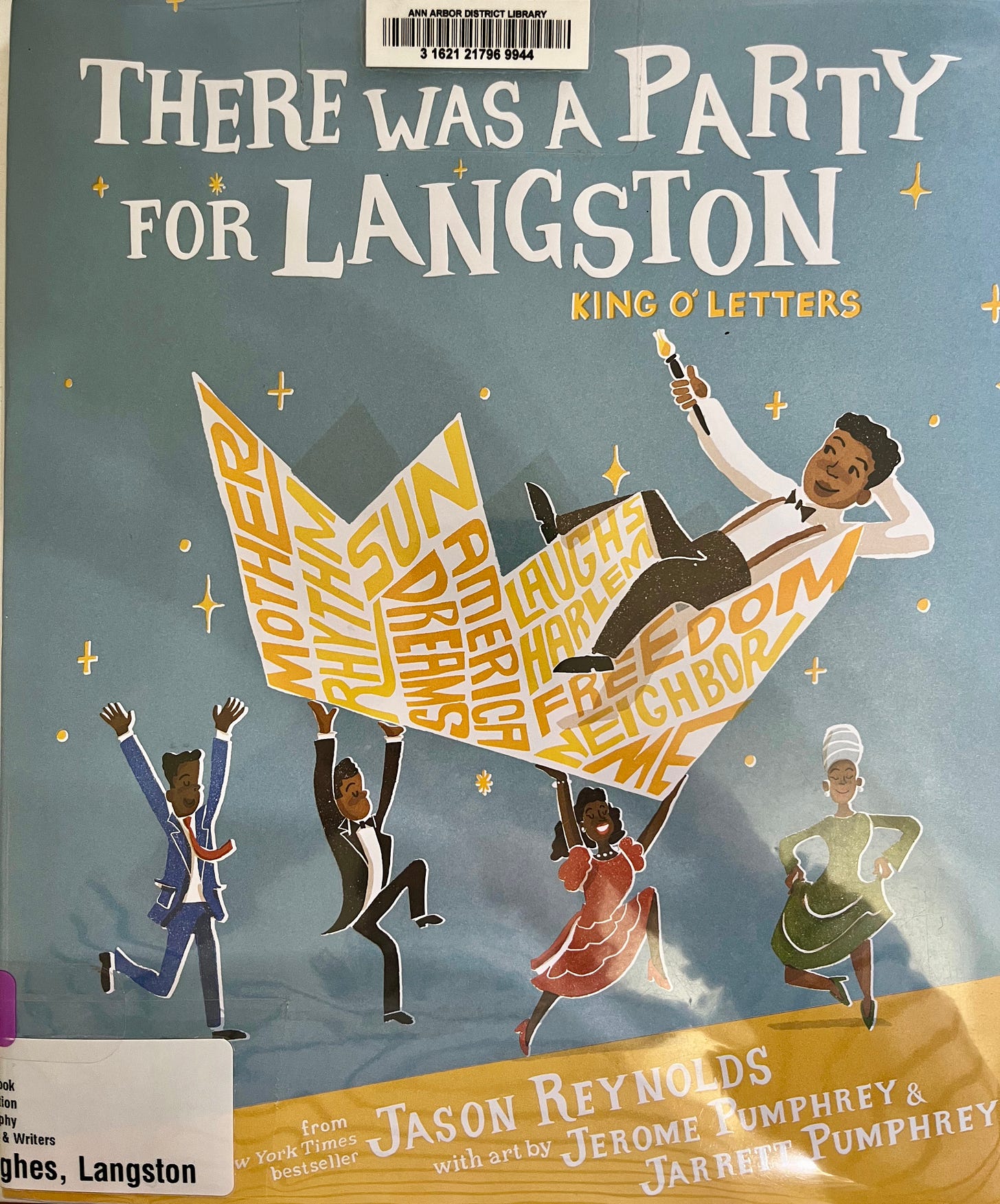

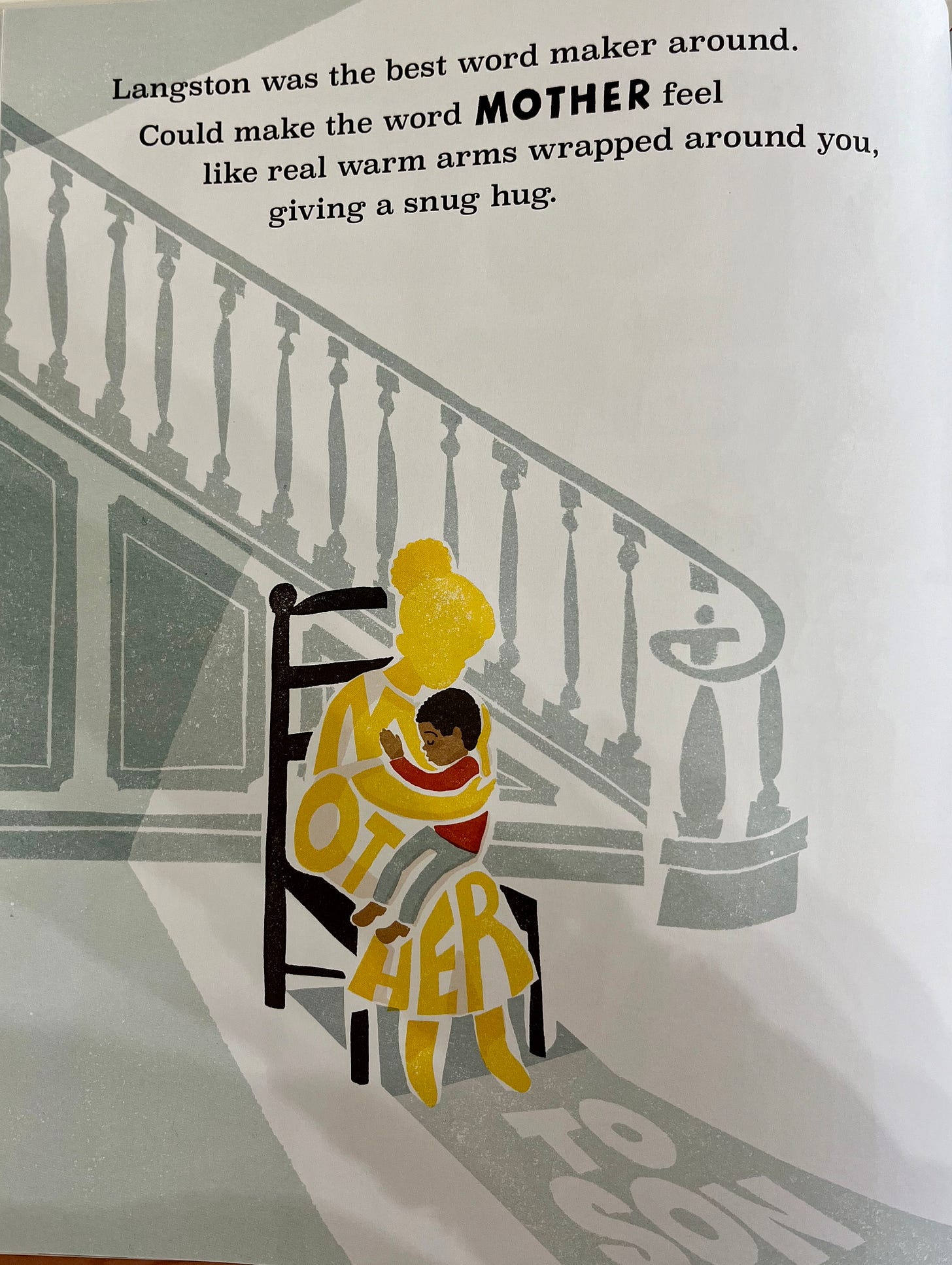
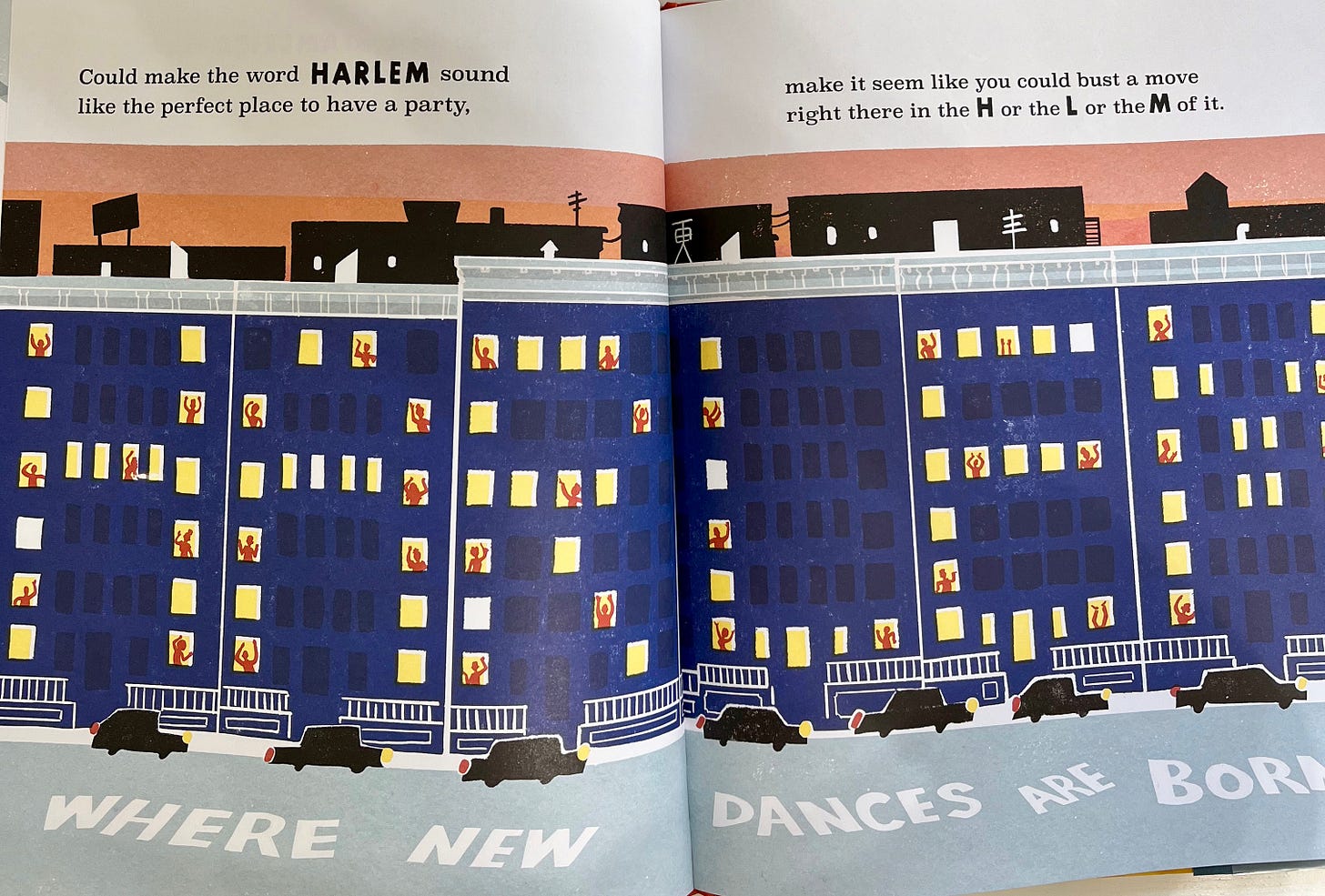
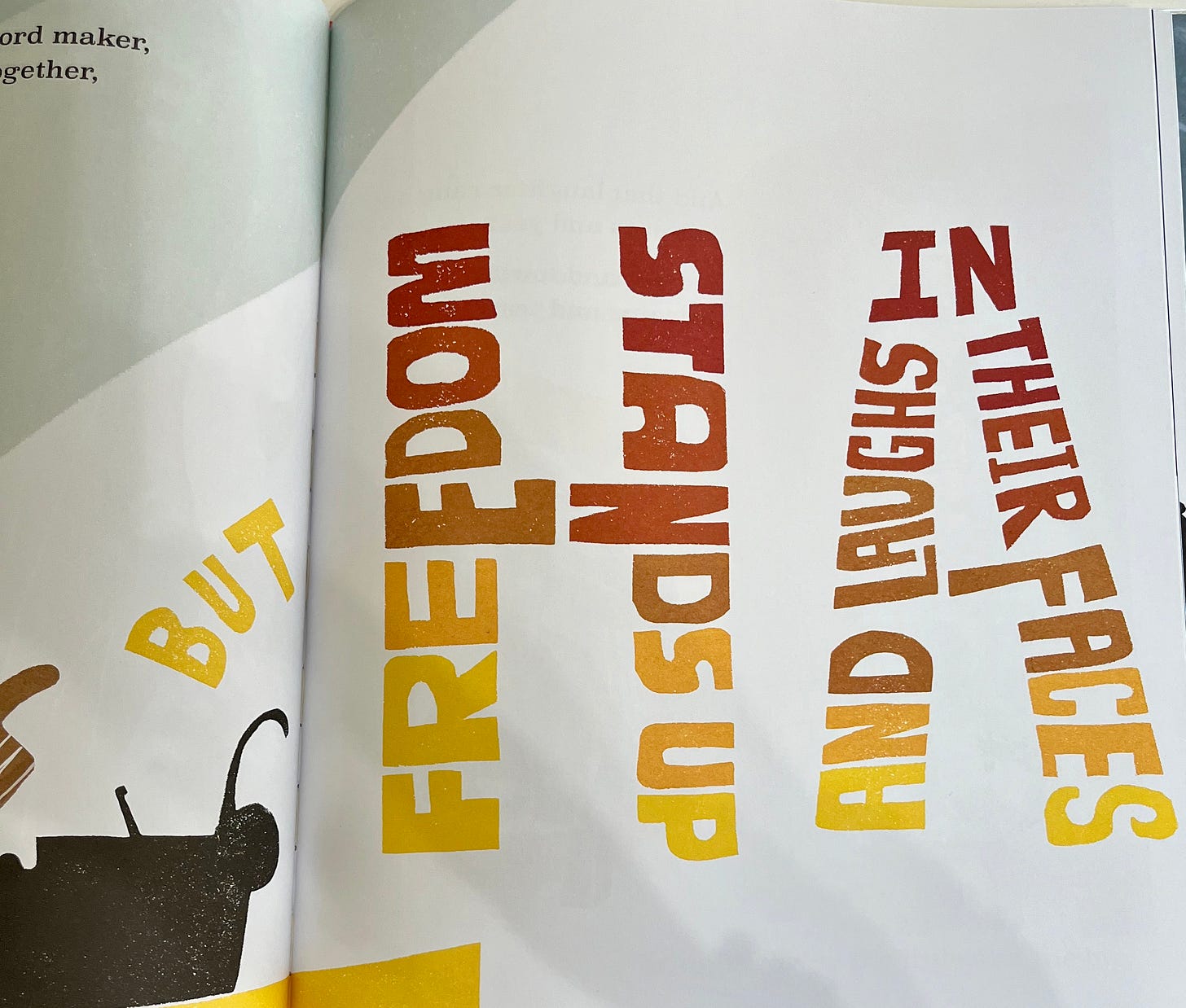
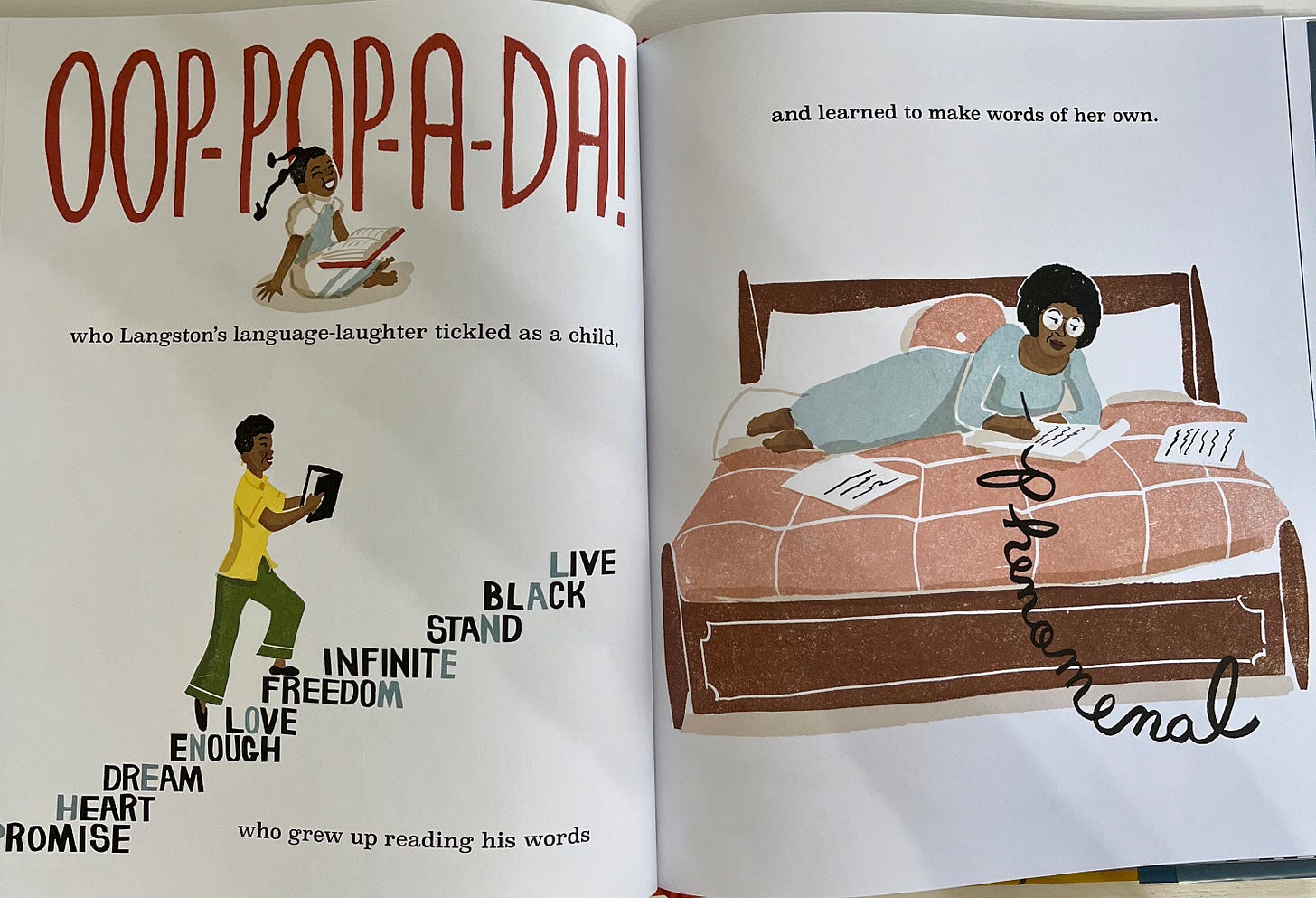
Love!!!
Oh, I love that you have the "Mother to Son" image here! Yes, this book invites us into a space that is not always safe. It beckons us away from our space along the edge of the wall, to join the party and dance.
P.S. What that bookstore did to "In Cold Blood" is wrong, wrong, wrong.